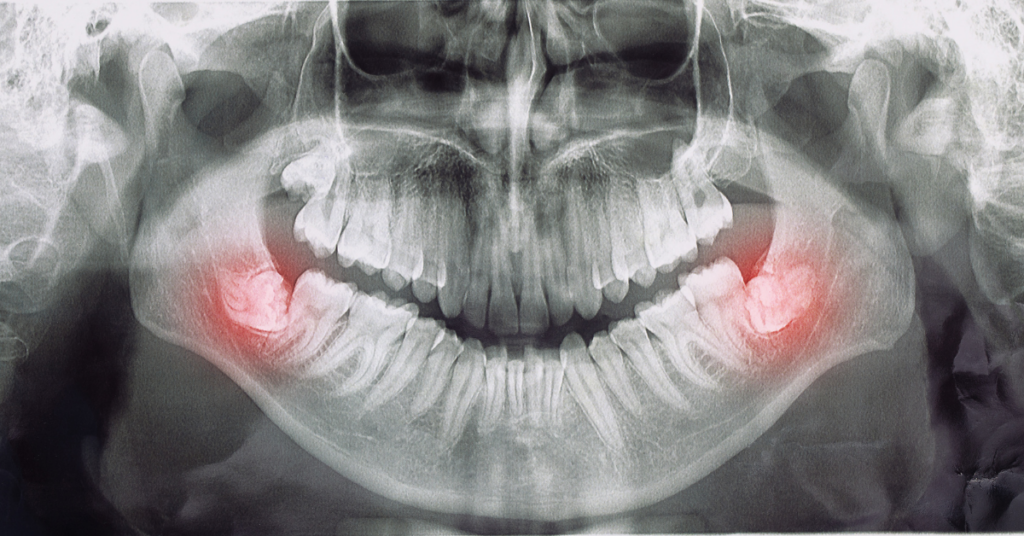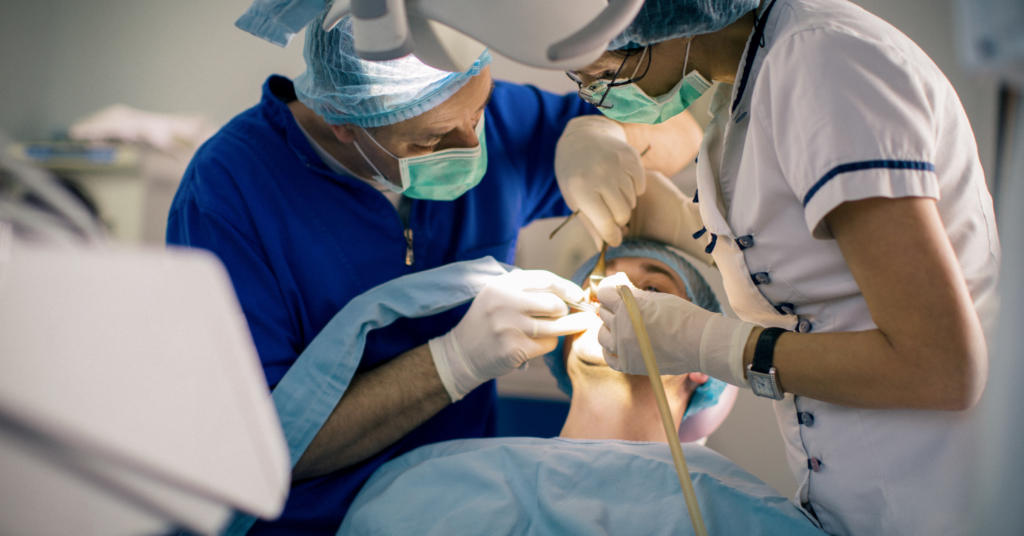Wisdom Teeth: To Keep or To Extract?

Wisdom teeth, also known as third molars, are the last set of teeth to develop in the back of the mouth. They typically appear between the ages of 17 and 25, and not everyone may develop them. When they do develop, they can cause a variety of problems, leading to the question of whether to keep or extract them.
Reasons for Wisdom Tooth Extraction
One of the main reasons why wisdom teeth may need to be extracted is due to a lack of space in the mouth. As our jaws have evolved over time, they have become smaller and less able to accommodate the addition of these extra molars. This can lead to wisdom teeth growing in at an angle or becoming impacted, which can cause pain, swelling, and infection. In addition, wisdom teeth can also push on other teeth, causing them to shift and become misaligned. This can lead to bite issues, difficulties with chewing and speaking, and even headaches.
Another reason why wisdom teeth may need to be extracted is due to an increased risk of tooth decay and gum disease. Wisdom teeth that are partially erupted can trap food and bacteria, leading to an increased risk of decay and infection. This can also cause damage to the surrounding teeth, jaw, and nerves.
Risks of Keeping Wisdom Teeth

While some people may be able to keep their wisdom teeth, others may find that the risks outweigh the benefits. For example, keeping wisdom teeth that are impacted can lead to the development of cysts or tumors. Additionally, keeping wisdom teeth that are causing crowding can lead to misalignment of the other teeth. This can lead to bite issues, difficulties with chewing and speaking, and even headaches.
Evaluation by a Dental Professional
If you’re unsure about whether or not you need your wisdom teeth extracted, your dentist or oral surgeon can evaluate your mouth to determine if they are causing problems. If you have dental anxiety, read our article on how to overcome fear of the dentist. They may take x-rays to check the position of the teeth and assess the potential risks of keeping them. They will also consider factors such as your age, overall oral health, and any underlying medical conditions.
The Process of Wisdom Tooth Extraction

The process of wisdom tooth extraction is typically done under local anesthesia, IV sedation, or general anesthesia. Recovery time can vary, but most people are able to return to normal activities within a week. If you’re considering dental implants after extraction, read our article on how long after tooth extraction can I get an implant. However, it’s important to follow your oral surgeon’s post-operative instructions to ensure a smooth and speedy recovery. This includes taking prescribed medications as directed, avoiding strenuous activities, and practicing good oral hygiene.
Risks of Wisdom Tooth Extraction
It’s important to note that the extraction of wisdom teeth is a common procedure, but it’s not without risks. Some of the risks associated with wisdom teeth extraction include bleeding, infection, nerve damage, and dry socket. However, these risks are generally low and can be minimized by following post-operative instructions and taking care of yourself properly after the surgery, including maintaining fresh breath. For tips on keeping your breath fresh, read our article on saying goodbye to bad breath.
Alternatives to Wisdom Tooth Extraction
Not all wisdom teeth need to be extracted. If there is adequate space in the jaw and the teeth are erupted in proper alignment they should be treated and cared for as any other natural tooth in the mouth. Some alternative treatments for gum issues related to wisdom teeth include laser periodontal treatment.
Cost of Wisdom Tooth Extraction
The cost of wisdom tooth extraction can vary depending on the location and whether the extraction is done by a general dentist or an oral surgeon. On average, the cost can range from $225 to $600 per tooth. It’s important to check with your dental insurance provider to see if the procedure is covered and to be prepared financially if extraction is necessary. Additionally, some dental insurance plans also cover a portion of the cost of extractions. A bone graft may be beneficial in some cases after removal of lower impacted wisdom teeth. This varies depending on individual circumstances.
Conclusion
In conclusion, wisdom teeth can cause a variety of problems and the decision to keep or extract them is a personal one that should be made with the guidance of a dental professional. Your dentist or oral surgeon will be able to evaluate your mouth and determine if your wisdom teeth are causing problems or if they are likely to cause problems in the future. They will also consider factors such as your age, overall oral health, and any underlying medical conditions.

If extraction is deemed necessary, it’s important to understand the potential risks associated with the procedure and to follow post-operative instructions to minimize those risks. It’s also important to be prepared financially, as the cost of extraction can vary.
It’s also worth considering that while wisdom teeth extraction may seem like a hassle and an inconvenience in the short term, it can ultimately lead to long-term oral health benefits. By removing problematic wisdom teeth, you can prevent serious and costly dental problems in the future. Maintaining good oral hygiene is also essential, so make sure you read our article on choosing the right toothbrush and toothpaste.
The decision to keep or extract wisdom teeth should be based on your individual needs and circumstances. By working closely with your dental professional and considering the potential risks and benefits, you can make an informed decision that is right for you.
The timing of wisdom teeth extraction can also be important. It’s generally recommended that wisdom teeth be extracted earlier rather than later, as the roots of the teeth are not fully developed and the bone surrounding the tooth is less dense in younger individuals. This can make the extraction process less complicated and recovery time faster.
Wisdom teeth that are causing problems can lead to a domino effect on other teeth, causing them to shift and become misaligned. By removing problematic wisdom teeth, you can prevent this from happening and maintain a healthy and straight smile.
It’s important to be aware that not all wisdom teeth cause problems, and some people are able to keep them without issue. However, regular dental check-ups and x-rays are essential to monitor the position of wisdom teeth and detect any changes early on.
Finally, it’s worth mentioning that there are various options for pain management during and after wisdom teeth extraction. Your dentist will provide you with instructions for pain management, but over-the-counter pain medication, ice packs and keeping your head elevated can also help alleviate pain and swelling.
Don’t let wisdom teeth issues affect your oral health and quality of life. Our team of experienced dental professionals is here to help you make the best decision for your individual needs. We offer comprehensive evaluations, expert advice, and personalized treatment plans to address your wisdom teeth concerns. If you’re looking for a trusted dental specialist who can guide you through the process of wisdom teeth extraction or any other dental services, don’t hesitate to reach out to us. Book an appointment today and take the first step towards a healthier, happier smile.